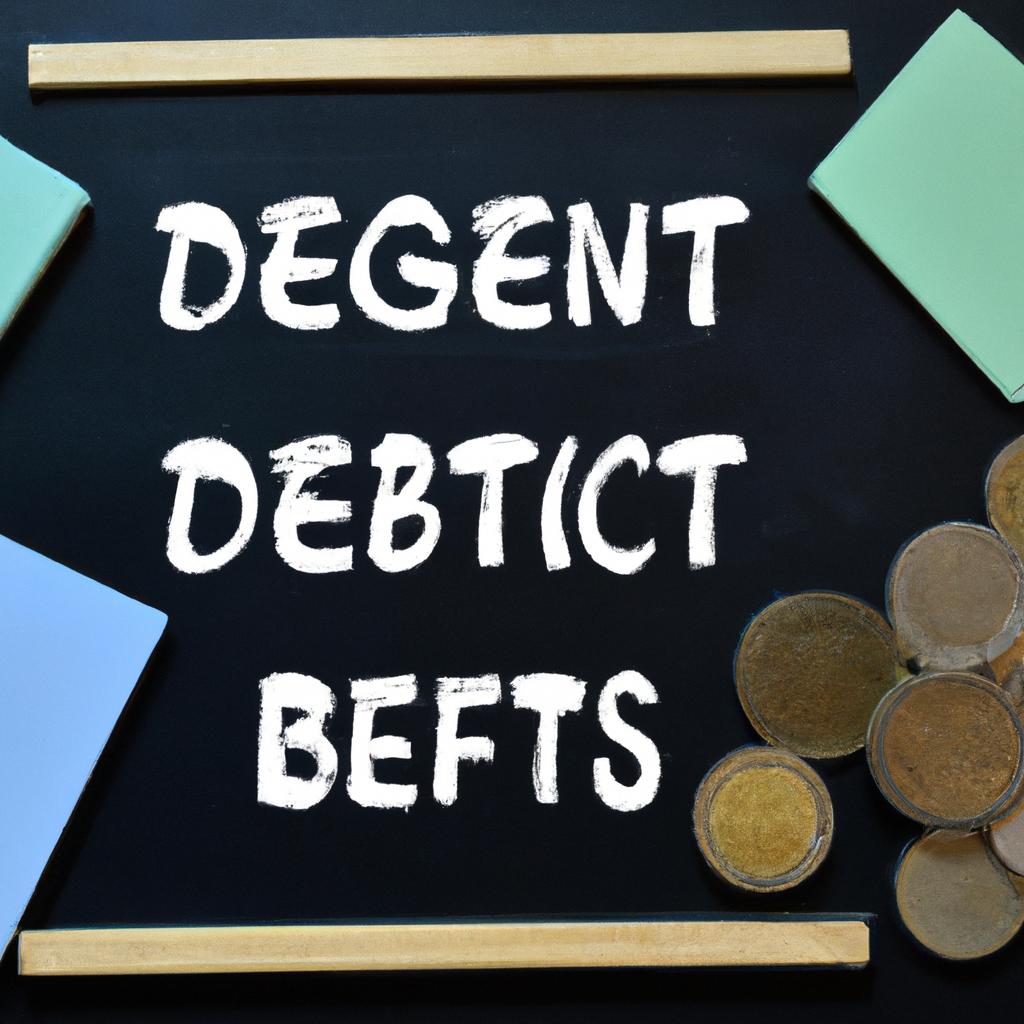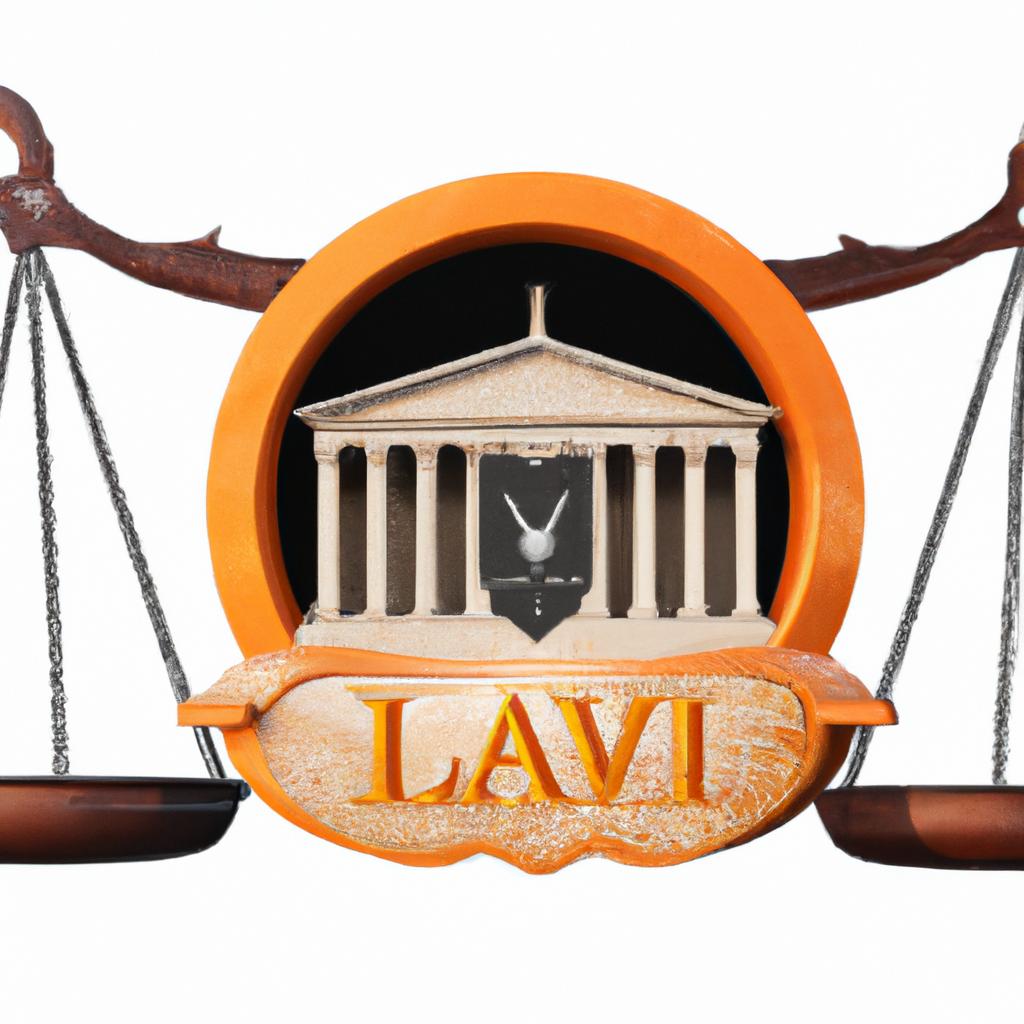Probate, often shrouded in mystery and confusion, is an essential process that ensures the proper distribution of a deceased individual’s assets. As experienced attorneys at Morgan Legal Group in bustling New York City, we specialize in navigating the complexities of probate to safeguard the wishes of our clients and their loved ones. In this article, we aim to shed light on the importance of probate in executing a will, dissecting the intricacies of this crucial legal procedure with clarity and insight. Join us as we delve into the vital role probate plays in the realm of estate planning and learn why it is indispensable in the posthumous transfer of assets.
Understanding the Probate Process: Navigating Legal Requirements
Probate is the legal process through which a deceased person’s assets are distributed and their debts are paid. While not all assets are required to go through probate, it is often necessary to ensure that the deceased person’s wishes are carried out correctly. One of the main reasons a will needs to be probated is to establish its validity. This process ensures that the will was executed properly and meets all legal requirements.
During probate, the court oversees the distribution of assets and the payment of debts. This process also provides an opportunity for any interested parties to contest the will if they believe it is not valid. By probating a will, the court can ensure that the deceased person’s final wishes are respected and that their estate is distributed according to the law. It is important to work with an experienced probate attorney to navigate these legal requirements and ensure that the probate process is handled smoothly and efficiently.

Ensuring Validity of the Will: Executor Responsibilities and Court Approval
As an executor of a will, it is your responsibility to ensure that the will is valid and complies with the laws of the state. The validity of the will needs to be verified through a court process called probate. This process involves submitting the will to the court for approval, which includes confirming the authenticity of the will, the capacity of the testator, and that the will was executed properly.
Probate is necessary to ensure that the wishes of the deceased are carried out accurately and to prevent any disputes among beneficiaries. Through probate, the court provides an official stamp of approval on the will, allowing the executor to distribute the estate assets according to the terms of the will. Probate also protects the rights of creditors and ensures that any debts of the deceased are paid off before the distribution of assets.

Protecting the Rights of Beneficiaries: Distribution of Assets and Debts
Probate is a legal process where the court oversees the distribution of a deceased person’s assets and debts. It ensures that the deceased person’s wishes, as outlined in their will, are carried out properly. While probate can be a time-consuming and potentially costly process, it is necessary to protect the rights of beneficiaries and ensure that all debts and assets are distributed equitably.
During probate, the court will validate the deceased person’s will and appoint an executor to manage the estate. The executor is responsible for gathering and valuing assets, paying off any outstanding debts, and distributing assets to the beneficiaries according to the terms of the will. Probate also provides a forum for resolving any disputes that may arise among beneficiaries or creditors. Overall, probate is a crucial step in protecting the rights of beneficiaries and ensuring the orderly distribution of assets and debts.

Maximizing Efficiency: Working with Experienced Probate Attorneys
Probate is the legal process of administering a deceased person’s estate. When a person passes away, their assets and debts need to be properly distributed and settled. This is where probate comes into play. A will needs to be probated for a variety of reasons, including:
- Verifying the authenticity of the will
- Resolving any disputes or issues regarding the distribution of assets
- Ensuring that creditors are paid off
- Transferring ownership of assets to beneficiaries
Working with experienced probate attorneys can help streamline the probate process and maximize efficiency. These professionals have the knowledge and expertise to navigate the complexities of probate law, ensuring that all legal requirements are met and that the estate is administered in a timely manner. By enlisting the help of probate attorneys, you can minimize the stress and confusion often associated with probate proceedings, allowing you to focus on grieving and honoring your loved one’s memory.
Q&A
Q: Why does a will need to be probated?
A: Probate is necessary to ensure that the deceased’s assets are distributed according to their wishes and that any debts are settled.
Q: Is probate always required?
A: Not always. In some cases, assets can be distributed without going through the probate process, such as when assets are held in a living trust or designated beneficiaries are named on accounts.
Q: What happens during the probate process?
A: The court oversees the distribution of assets, pays any outstanding debts and taxes, and resolves any disputes that may arise among beneficiaries.
Q: How long does probate typically take?
A: The length of probate can vary depending on the complexity of the estate and whether any disputes arise. It can take anywhere from a few months to several years.
Q: Can probate be avoided?
A: While probate can be a lengthy and costly process, there are steps that can be taken to minimize the need for probate, such as creating a living trust or using joint tenancy with rights of survivorship.
Key Takeaways
In conclusion, the probate process may seem daunting, but it is an essential step in ensuring that the wishes outlined in a will are carried out properly. By validating the authenticity of the will and overseeing the distribution of assets, probate helps to prevent disputes and confusion among heirs. So, the next time you find yourself wondering why a will needs to be probated, remember that it serves an important purpose in the legal system, providing peace of mind for all parties involved.
 Why Does a Will Need to be Probated?
Why Does a Will Need to be Probated?
Having the foresight to create a will is an important step in ensuring that your last wishes are honored and your assets are distributed according to your wishes after your passing. However, simply having a will in place is not enough. In most cases, a will must go through a legal process called probate before the assets can be distributed to the beneficiaries. In this article, we will explore the reasons why a will needs to be probated and what the probate process entails.
What is Probate?
Probate is a legal process that verifies the validity of a will and ensures that the instructions laid out in the will are carried out accordingly. It is a necessary step in the distribution of a deceased person’s assets and often involves the court system. The process can vary depending on the state in which the deceased resided and the complexity of the estate.
Reasons Why a Will Needs to be Probated:
1. Validity of the Will:
The main reason for probate is to ensure the validity of the will. It provides a legal channel to determine whether the will was created by the deceased, was created under their free will, and meets all legal requirements for a valid will.
2. Asset Distribution:
Probate also serves as a means to distribute the assets of the deceased according to the terms of the will. It ensures that the beneficiaries receive their fair share of the estate and that all debts and taxes are paid before distribution.
3. Dispute Resolution:
In some cases, disputes may arise among family members or other beneficiaries regarding the distribution of assets. The probate process provides a legal platform to resolve such disputes and prevents any potential conflicts between the beneficiaries.
4. Protection of Creditors:
During the probate process, all debts and taxes owed by the deceased are paid from the estate before distribution to the beneficiaries. This ensures that the creditors are protected and that the beneficiaries do not inherit any debt.
5. Protection of Vulnerable Beneficiaries:
Probate also protects vulnerable beneficiaries, such as minors or individuals with special needs, by ensuring that their share of the estate is managed responsibly until they are of age or able to manage their inheritance.
The Probate Process:
The probate process begins with the executor, the person named in the will to handle the distribution of assets, filing a petition with the probate court. Once the will is validated, the assets are valued, debts are paid, and the remaining assets are then distributed to the beneficiaries. The probate process can take anywhere from a few months to a few years, depending on the complexity of the estate.
Benefits and Practical Tips:
1. Avoiding Probate:
One of the primary ways to avoid probate is by setting up a living trust. A trust allows the assets to be distributed to the beneficiaries without going through the probate process, saving both time and money. It also provides more privacy than probate, as it does not become public record like the probate process.
2. Planning for Retirement Accounts:
Retirement accounts, such as 401(k)s and IRAs, do not have to go through probate if beneficiaries are designated. It is important to regularly review and update the beneficiaries listed on these accounts to ensure that they align with the wishes laid out in the will.
3. Seeking Professional Guidance:
Probate laws and processes can vary by state, and it is vital to seek the guidance of an experienced estate planning attorney to navigate the process smoothly. An attorney can also assist with minimizing any potential tax liabilities and avoiding costly mistakes.
Case Studies:
In 2016, the late musician, Prince, passed away without a will, leaving behind an estate estimated to be worth over $300 million. As a result, his estate went through the probate process, and his assets were eventually distributed among his siblings after a lengthy legal battle.
Firsthand Experience:
“My father passed away last year, and we were overwhelmed with the probate process. It took over a year to complete, and we had to hire an attorney to navigate the complexities of the process. If my father had set up a trust or updated his beneficiaries, it would have saved us a lot of time, money, and stress,” says Lisa, 42, from Michigan.
In conclusion, understanding the reasons why a will needs to be probated can help individuals better prepare for the distribution of their assets and make the process smoother for their loved ones. While it may seem daunting, seeking professional guidance and planning ahead can alleviate most of the stress associated with the probate process. Although probate can add some delays and costs, it is a necessary step to protect the interests of all parties involved and ensure that the last wishes of the deceased are honored.

